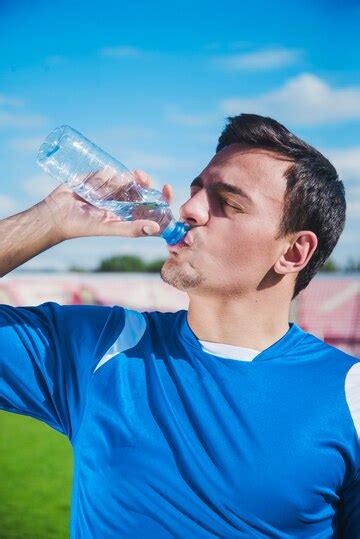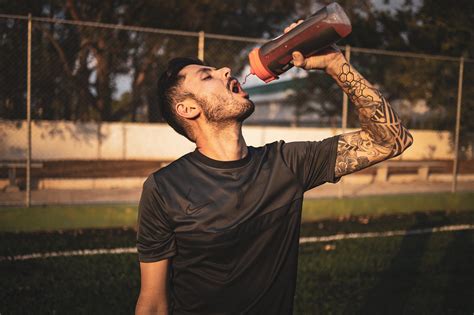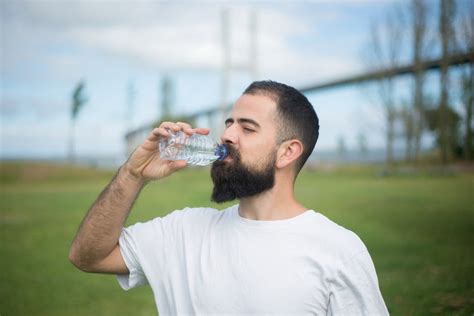Hydration is fundamental to our overall health and well-being, yet many of us remain uncertain about how much water we should be drinking each day. The question of “how much water should you drink a day” is often met with varying answers, influenced by numerous factors such as age, activity level, and climate. In this article, we delve into the significance of proper hydration and provide expert recommendations to help you meet your daily water intake goals. We’ll also debunk common misconceptions about hydration and offer practical tips for maintaining optimal fluid levels. Understanding and addressing your individual hydration needs is key to achieving and sustaining a healthy lifestyle.
ujeruj.net offers a detailed exploration of this topic.
1. Importance of Hydration: Discuss why adequate water intake is crucial for overall health and well-being.
Water is essential for virtually every function in the human body, making adequate hydration crucial for maintaining overall health and well-being. It regulates body temperature, aids in digestion, and supports nutrient absorption. Proper hydration helps keep joints lubricated, enhances cognitive function, and ensures the efficient removal of waste products through urine and sweat. Additionally, sufficient water intake supports healthy skin and can prevent dehydration-related issues like fatigue, headaches, and dizziness. For those engaging in physical activity or living in hot climates, staying hydrated becomes even more important to replace fluids lost through sweat and maintain performance. In short, drinking enough water is vital for keeping all bodily systems functioning optimally and promoting a balanced, healthy lifestyle.

2. Factors Influencing Water Needs: Explore various factors such as age, activity level, climate, and health conditions that affect daily water requirements.
Daily water requirements vary significantly based on several factors. Age plays a crucial role; younger individuals and children generally need more fluids due to higher activity levels and faster metabolisms, while older adults may require adjusted intake to accommodate decreased thirst response and changes in kidney function. Activity level is another critical factor—those who engage in regular exercise or physically demanding activities lose more fluids through sweat and need to increase their water intake accordingly.
Climate also impacts hydration needs. In hot and humid environments, the body loses more water through perspiration, necessitating higher fluid consumption to stay hydrated. Additionally, individuals with certain health conditions, such as kidney disease or diabetes, may have specific hydration needs dictated by their medical status. Overall, understanding these variables helps tailor water intake to maintain optimal hydr

3. Expert Recommendations: Present insights from healthcare professionals or nutritionists on recommended daily water intake guidelines.
Experts generally recommend that adults aim for about 8 glasses, or approximately 2 liters (64 ounces), of water per day to maintain optimal hydration. This guideline, often referred to as the “8×8 rule,” is a practical target for most people but may need adjustments based on individual needs and circumstances. Healthcare professionals emphasize that the precise amount of water required can vary widely. For instance, the National Academies of Sciences, Engineering, and Medicine suggest a total daily water intake of about 3.7 liters (125 ounces) for men and 2.7 liters (91 ounces) for women, including all beverages and food sources of water.
Nutritionists often advise listening to your body’s signals, such as thirst, and adjusting fluid intake according to activity level and environmental conditions. They also stress the importance of not waiting until you’re thirsty to drink water, as thirst can sometimes be a late indicator of dehydration. In special circumstances, like during intense exercise or illness, fluid needs may increase significantly, requiring additional water intake to compensate for losses. Overall, maintaining a consistent and adequate water intake is essential for supporting bodily functions and overall health.

4. Common Misconceptions: Address myths or misunderstandings about hydration and clarify the truth behind them.
Several misconceptions about hydration can lead to confusion about how much water we actually need. One common myth is that everyone must drink exactly eight glasses of water per day, regardless of individual needs. In reality, water requirements vary based on factors such as age, activity level, and climate, and total hydration includes all fluids consumed, not just plain water.
Another misunderstanding is that thirst is always a reliable indicator of hydration needs. While thirst is a useful signal, it can sometimes lag behind actual dehydration, especially in older adults whose thirst response may be diminished. Additionally, some believe that drinking caffeinated or alcoholic beverages doesn’t count toward hydration, but these fluids contribute to overall fluid intake, though they may have mild diuretic effects.
Lastly, there’s a notion that you can “overhydrate” easily, but for most people, this is rare and typically only occurs with excessive water consumption over a short period. The body generally regulates water balance effectively. Addressing these myths helps in understanding the true requirements for maintaining proper hydration and supporting overall health.
5. Practical Tips for Hydration: Provide actionable tips on how individuals can ensure they meet their daily water intake goals.
To ensure you meet your daily water intake goals, consider these practical tips:
Carry a Reusable Water Bottle: Keep a water bottle with you throughout the day to make drinking water more convenient. Choose a bottle with measurements to track your intake.
Set Reminders: Use phone alarms or apps to remind you to drink water regularly. Setting reminders can help establish a routine and ensure you’re drinking enough throughout the day.
Infuse Your Water: Add natural flavors to your water with slices of fruit, herbs, or vegetables. Infused water can make drinking more enjoyable and encourage increased intake.
Track Your Intake: Use a journal or hydration app to monitor your daily water consumption. Tracking helps you stay aware of your intake and adjust as needed.
Drink Before Meals: Have a glass of water before each meal. This not only helps with hydration but can also aid digestion and control appetite.
Adjust for Activity and Climate: Increase your water intake during hot weather or when engaging in physical activity. Make sure to hydrate before, during, and after exercise.
Eat Water-Rich Foods: Incorporate fruits and vegetables with high water content, like cucumbers, oranges, and melons, into your diet. These foods contribute to your overall fluid intake.
Implementing these tips can help you maintain optimal hydration levels and support your overall health.
6. Personalized Approach: Highlight the importance of individualized hydration needs and the role of listening to one’s body in maintaining optimal hydration levels.
Personalized hydration is essential because water needs can vary greatly from person to person based on individual factors. While general guidelines provide a useful starting point, they may not fully address specific requirements. It’s crucial to listen to your body and adjust your fluid intake according to personal signals and circumstances.
Each person’s hydration needs are influenced by age, weight, activity level, and health status. For example, athletes or individuals with physically demanding jobs may need significantly more water than those with a sedentary lifestyle. Similarly, people living in hot climates or experiencing health conditions like diabetes may have heightened fluid needs.
Monitoring how your body responds to changes in hydration is key. Pay attention to signs of dehydration, such as dark urine, dry skin, or fatigue, and adjust your water intake accordingly. Conversely, if you notice symptoms of overhydration, such as frequent urination or a bloated feeling, you may need to scale back.
Ultimately, maintaining optimal hydration involves a combination of following expert recommendations and tuning into your body’s needs. By personalizing your approach and being responsive to your hydration signals, you can effe
In conclusion, staying properly hydrated is vital for maintaining overall health and well-being. By understanding the factors influencing water needs and adhering to expert recommendations, you can ensure you’re drinking enough each day. Addressing common misconceptions and applying practical hydration tips will help you meet your goals. Remember, a personalized approach that listens to your body’s signals is key to achieving optimal hydration and supporting a healthy, balanced lifestyle.
ujeruj.net

